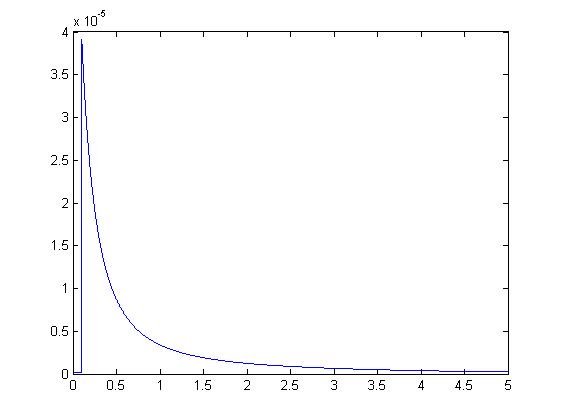Bitconnect: math behind a scam
Daily interest and volatility
I've been wondering for quite a while about bitconnect returns. What will impact it. According to bitconnect website daily interest is based on volatility of bitcoin price. So if Bitcoin price goes either up or down they make money. That kinda don't make any sense. How can they make money if the value of thir Bitcoin holdings goes down? Anyways.
I had to manually import data from bitconnect website just to satisfy my curiosity. The source is here. Also compared the same data with daily volatility, the source is here
This year Bitconnect paid an average of 0.92% daily interest rate, although monthly average varied from the lowest 0.51% in April to the highest 1.20 this month to date.
Chart 1: Average monthly interest
Chart 2: Average volatility
)
Comparing the data, bitconnect interest has a small correlation with volatility, but not quite the same. April interest was way lower than February, but volatility was similar. The same goes with May to July, volatility was higher that March, but interest was not. Also worth mentioning was that from May to September, interest was flat while volatility was spiking up and down.
Is daily interest rigged, or random
This is the main question. Who choses daily interest, is it a random number which is based on market, or a number which a person decide. Luckily, there are statistical methods which can be used to find out if a number is random or not. Same technique can be used with a coin flip. If you flip a coin 1000 times and write the outcome, also write down 1000 times coin flips without flipping a coin, trying to mimic randomness. Using statistics, we can easily find out which one is a genuine coin flip, and which one is not (somebody tried to mimic flipping a coin, aka a scam)
If bitconnect interest is not a random number that means that the payout gets decided by a person and not the market, proving evidence that bitconnect is a scam. Luckily in nature, random numbers come in specific patterns. The most common one is bell curve, another one is exponential decay. Bitcoin volatility follow an exponential decay curve, meaning it is more likely that there will be a 1% daily move than a 20% daily move. Or to put in other words, 1% daily moves happen more often than 20% daily moves.
An exponational decay looks like this:

So let's compare bitcoin volatility.I gathered bitconnect data for 2017, and compared them with bitcoin volatility for the same period. I compared how often moves happened in specific ranges.
Chart 1: Distribution of Bitcoin daily volatility
Chart 2: Distribution of Bitconnect interest
Comparing the charts, bitcoin volatility clearly follows a exponential decay. We can not say the same about bitconnect. This is a proof that bitconnect is a scam.
Follows and upvotes are appreciated :)
Disclaimer: The information contained herein is author's opinion, does not purport to be comprehensive and is strictly for information purposes only. This is not a financial advice. It should not be regarded as investment/trading advice.
I just followed you and upvoted i want know more about bitcoin news 🙏🏿 Keep posting
Faleminderit :)
Solid article !
It really blows my mind how the bitconnect scam became this big.
This should be the most viral video on the internet right now
Human stupidity has no limits my friends. Soon a lot of lives will be ruined.
img credz: pixabay.com
Nice, you got a 99.0% @minnowbooster upgoat, thanks to @ctyptouniverse
It consists of $19.58 vote and $6.53 curation
Want a boost? Minnowbooster's got your back!
The @OriginalWorks bot has determined this post by @ctyptouniverse to be original material and upvoted(1.5%) it!
To call @OriginalWorks, simply reply to any post with @originalworks or !originalworks in your message!